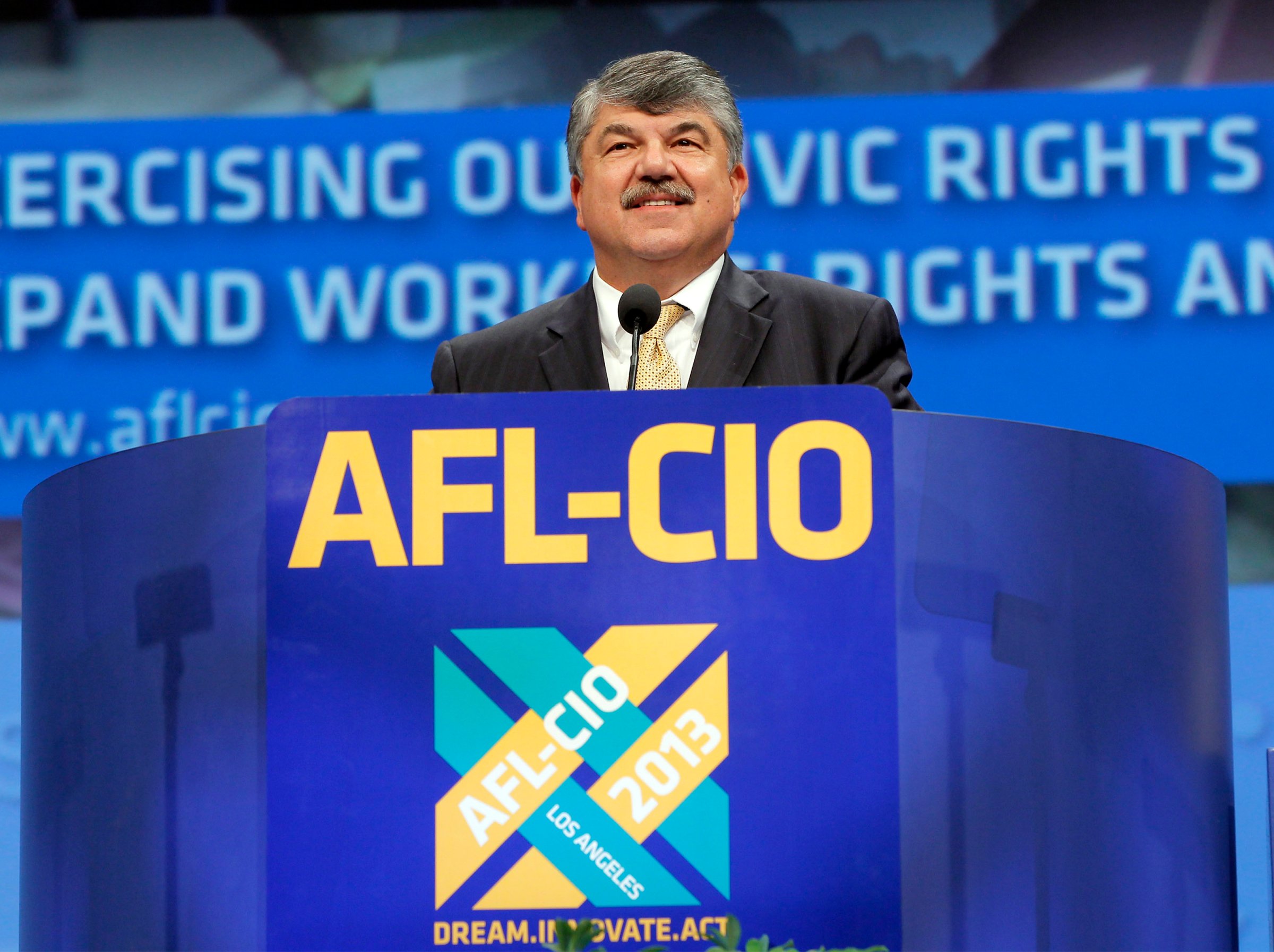
The head of one of the nation’s most powerful labor federations said Tuesday that it has been a struggle to motivate workers ahead of the midterm elections, but that momentum was growing among the union members that Democrats will need to vote in droves for the party to retain control of the Senate and win a slew of tight gubernatorial races.
Richard Trumka, the president of the AFL-CIO, said global events such as tumult in the Middle East and the Ebola virus scare had diverted workers’ attention from the economic issues that form the cornerstone of the movement’s message.
“It took more effort this time to break through,” Trumka told reporters at the labor giant’s headquarters in Washington. “Our job is made a little more difficult by all those external things: the Middle East, Ebola.”
The AFL-CIO has shelled out more than $6 million in political contributions so far in 2014, according to data compiled by the Center for Responsive Politics. Most of that has been funneled through the AFL-CIO Workers’ Voices PAC. Members are working to drive turnout through traditional ground-game efforts like phone banks, door knocks and leafleting. As a result, Trumka said, voters were beginning to “connect the dots” between Republican policies and the flat wages and slashed pensions that have buffeted middle-class union members.
“The momentum is starting to build,” Trumka said.
Returning from a tour of battleground states, Trumka said he saw candidate after candidate on the Republican side running against the policies of President Barack Obama, rather than enumerating specific policies of their own. If Republicans seize the Senate, Trumka said, it would result in stalled executive appointments, judicial vacancies and a fresh round of doomed efforts to repeal the Affordable Care Act. “There’s a sense of urgency,” he added.
At least there should be. Unions’ power has been curbed in recent years by a broad campaign to restrict collective bargaining and impose right-to-work legislation. The effort to enact comprehensive immigration reform, one of the labor movement’s top priorities, has been stalled since the summer of 2013; Obama’s decision to punt on the issue until after the midterms incensed labor leaders and has the potential to trim turnout. Looking ahead, many labor leaders aren’t particularly enthused about the potential presidential candidacy of Hillary Clinton, with concerns that the former New York senator is too close to Wall Street spurring a push for a populist candidate like Elizabeth Warren.
Trumka said he saw positive momentum for pro-labor candidates like Alison Lundergan Grimes, the Democratic Senate candidate in Kentucky. But he was circumspect about his predictions for November. “It’s going to be an interesting election,” he said. “We have our work cut out for us.”
More Must-Reads from TIME
- Donald Trump Is TIME's 2024 Person of the Year
- Why We Chose Trump as Person of the Year
- Is Intermittent Fasting Good or Bad for You?
- The 100 Must-Read Books of 2024
- The 20 Best Christmas TV Episodes
- Column: If Optimism Feels Ridiculous Now, Try Hope
- The Future of Climate Action Is Trade Policy
- Merle Bombardieri Is Helping People Make the Baby Decision
Write to Alex Altman at alex_altman@timemagazine.com